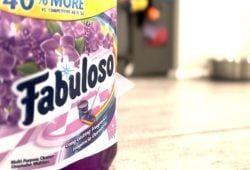Walmart shoppers who found themselves paying more than the advertised price for certain items may now be eligible for a significant payout due to a lawsuit settlement. The controversy stems from allegations that the retail giant sold weighted goods or bagged citrus items at prices higher than those listed in-store, sparking a legal battle that has concluded in a potential $500 compensation for affected customers.
The federal lawsuit, lodged in the Middle District of Florida, accused Walmart of deceiving customers by inflating the weight of products such as poultry, pork, seafood, and certain bulk-sold citrus fruits like oranges, tangerines, and grapefruit. This “allegedly deceptive pricing scheme,” first reported by Today.com, purportedly led to consumers paying more than they should have, especially for products sold by weight and clearance items, including seafood.
Despite Walmart’s denial of these allegations, stating a commitment to providing low prices and denying any deceptive practices, the company has agreed to a $45 million settlement. This decision, according to Walmart, is in the best interest of both the company and its customers.
Walmart Settlement Claim: Eligibility and Claim Details
Eligibility for the claim extends to any customer who purchased the specified products between October 19, 2018, and January 19, 2024. The amount each shopper is eligible to receive depends on the nature of their purchase and the availability of proof of purchase:
- Without proof, customers can claim between $10 to $25, depending on the quantity of weighted goods or bagged citrus products they bought in person.
- With proof of purchase, customers could receive 2 percent of the total amount paid for each eligible product, up to a maximum of $500.
ALSO READ. What does the Bible say about the April 8 eclipse? The most googled myths
How to File a Claim
To file a claim, eligible customers can either submit a form online or mail it, ensuring it is postmarked by June 5, 2024. The form is available on the lawsuit’s dedicated settlement website. Payment options include Venmo, Zelle, ACH, or a virtual pre-paid MasterCard, with the option for a paper check upon request.
This settlement not only aims to compensate those who overpaid but also serves as a significant moment of accountability for retail practices. With a final hearing scheduled for June 12, 2024, to assess the fairness and adequacy of the settlement, payments are expected to commence shortly after, provided there are no appeals.
Walmart’s settlement underscores the importance of accurate pricing and transparency, ensuring customers receive fair treatment and reinforcing the principle that advertised prices should match those at the cash register.











